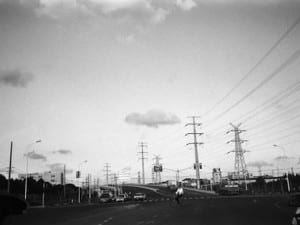To mark International Women’s Day today, we celebrate women in film with an interview with Qatari Filmmaker Sarah Al-Derham. At just 22-years-old, Al-Derham has already directed six films and seen them screened at the Gulf Film Festival, Ajyal Youth Film Festival and Doha Tribeca Film Festival. Al-Derham seeks to highlight the role of women in Qatari society and she speaks to us about her hopes for the future and her work in the industry.
A: At 22 you have already produced a number of feature films and short films, how did you start out in the industry?
SAD: I was already interested in the moving image and cinema at a young age. I got my first camera when I was 12 years old, took many photographs during my travels and produced a few home videos with my sisters. I’ve always loved visual culture and studying Media Industries and Technology at Northwestern University in Qatar pushed me to make films for the public rather than myself.
As an undergrad, I spent time creating my unique cultural identity and that was projected in the eight films I produced during my time there. I was very careful when referencing Qatari cultural and traditional motifs in my films. I tried as much as I could to make sure that I was sending out a positive yet informative and honest image about my country and background. Most of my films have very strong female leads – the main purpose is to project how women are active participants in Qatari society, and that men and women work hand in hand to build the country. This is an important point regarding the representation of Arab women, who are usually portrayed as passive, illiterate and silent in classic and contemporary cinema.
A: Can you tell me a little about your most recent film, Jumana of the Middle East (2013). What was the initial idea behind this work?
SAD: I created Jumana of the Middle East as part of a class project, but the film is very personal to me and I hope I will be able to showcase it in major film exhibitions. Jumana, the protagonist of the film, named after an everlasting gemstone, represents women in the Middle East. She is the symbol of that everlasting strength and perseverance. She tells the story of the unwritten rule about love in different cities, focusing on both Doha and Paris. She determines that she does not need the love of a man to grow strong and succeed, and that in order for her to develop, she needs to explore different cities and explore herself and her identity. Jumana’s strength comes from the idea of freedom and exploration of the self and the world.
A: You work in both short film and feature film, what are the pros and cons of each?
SAD: I feel like both are difficult and challenging. A film set is a film set, with all its stress, commotion and energy, no matter what type of production. With short films, you are given a short amount of time to execute your ideas in the most effective and influential way possible. And with feature films, you are presented with the challenge of keeping the audience engaged and interested in the narrative. In short, spreading an effective message that would stick with the audience consciously and subconsciously is a filmmaker’s main challenge, regardless of the length of the film. If you lose the audience’s interest, a 10 minute film would feel like an hour, but if you manage to keep them on the edge of their seats then three hours go in the blink of an eye.
A: You are a woman working in Qatar’s film industry, what battles have you had to face?
SAD: The film industry in Qatar is very new, and a lot of people have been very skeptical about its success. I guess the main battle I had to face is showing everyone that there “can be” something great that comes out of this, and we can succeed as local ambassadors for our country in this field. As a Qatari filmmaker, I believe local talents have a lot to offer. When I started producing films, many other Qatari filmmakers from different social and educational backgrounds were emerging. Yes, we are small in numbers, but we are also a very passionate community and we constantly provide each other with moral and financial support. We always want to see each other succeed, we’ve fought this battle together and we continue to fight. Qatari cinema is still new, but very rich and diverse in genres, modes of storytelling and execution techniques. And I am very hopeful that our work will be able to gain international recognition very soon.
A: What are your plans for the rest of 2015? Do you have more films in the pipeline?
SAD: I am currently at SOAS, London, pursing an MA in Critical Media and Cultural Studies, which is very hectic, but has not taken me away from filmmaking. I plan to create a second film, which is one of four films following on from Jumana of the Middle East. The film will be shot between Doha and London and will serve as a commentary on alienation and cultural identity. I also plan on doing an observational documentary by the end of the year which discusses issues around exile, home and community.
See her Vimeo channel here.
Follow us on Twitter @asffest for the latest news in film in the UK and internationally.
Credits
1. Muba’ah, courtesy of Sarah Al-Derham.




